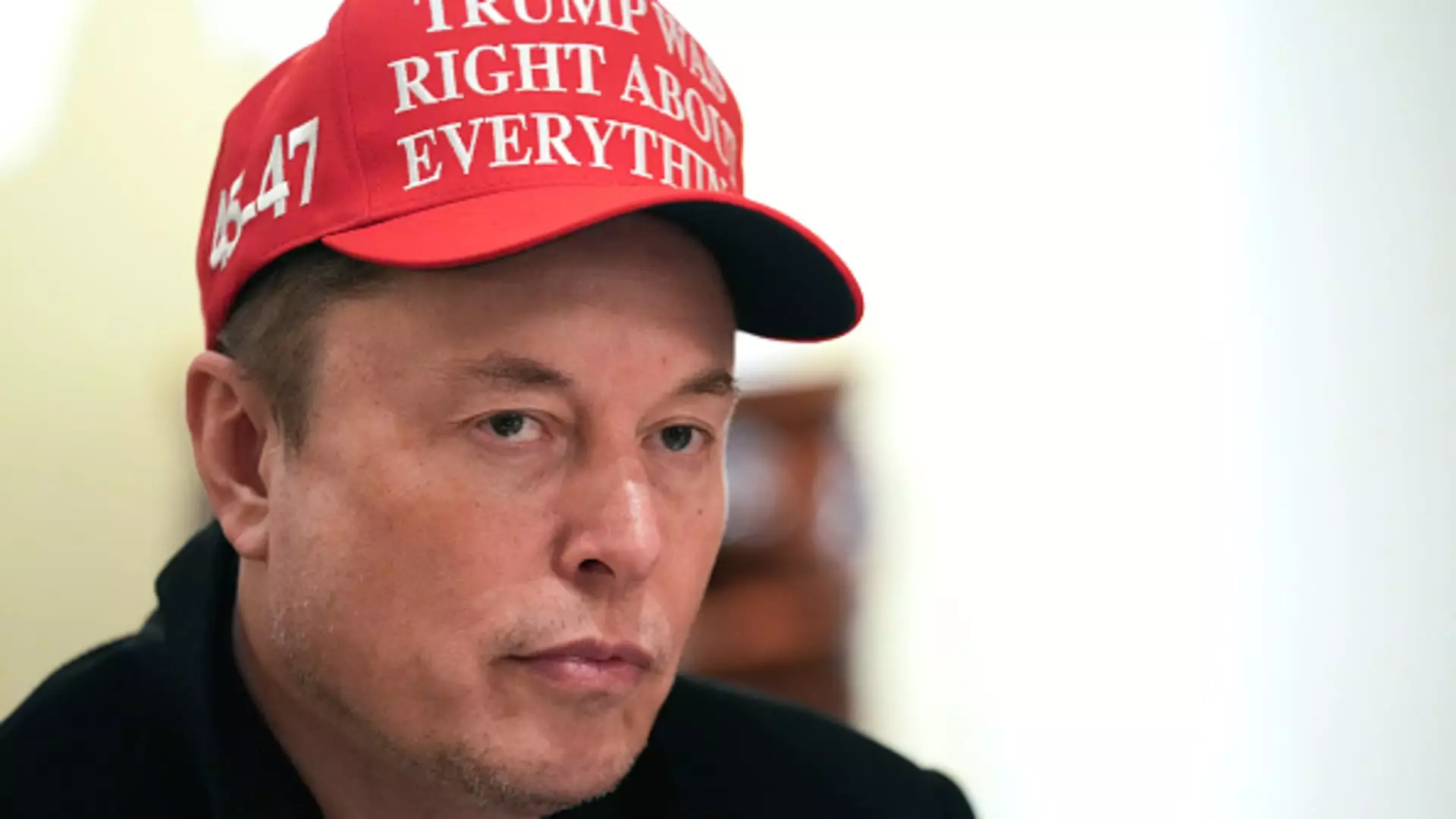Tesla, once considered the beacon of innovation in the electric vehicle (EV) sector, is embroiled in a multifaceted crisis as its stock plummets dramatically. On a recent Monday, shares fell almost 6%, closing at $227.50. This decline marked another indicator that the once unassailable brand is now experiencing significant turmoil, leaving it a mere $6 above its yearly low from April 8. For investors, this isn’t just a minor setback; it’s a glaring reminder that Tesla’s stock has nosedived 44% in the year thus far, culminating in the company’s worst quarterly performance since 2022. In fact, this marks the twelfth time this year that the stock has experienced a single-session drop of 5% or more.
The decline is made all the more worrisome as analysts express growing concerns over “ongoing brand erosion.” This sentiment is driving investor apprehension regarding Tesla’s future. The company stands at a crossroads, facing internal distractions and external pressures that exacerbate its challenges.
Leadership Distractions: A Burden on Brand Identity
Much of the scrutiny surrounding Tesla centers on CEO Elon Musk, whose increasing political engagements are starting to overshadow his role within the company. Musk’s time investment in various pursuits, particularly his high-profile involvement with the Trump administration, raises eyebrows among investors. Questions are circulating about Tesla’s long-term stability and viability, with particular emphasis on how Musk’s political affiliations and directives affect brand perception.
Investor sentiment is painfully evident as concerns are voiced in Tesla’s own online forums, where over 300 questions focused on self-driving technology while nearly 200 pertained to the Optimus humanoid robots under development. Notably, over 160 inquiries were directly aimed at Musk himself, indicating a palpable unease that transcends product performance and hinges on leadership qualities.
One poignant inquiry addressed by a concerned investor questioned: “What steps has the board of directors taken to mitigate the brand damage caused by Elon’s political activities?” This highlights a critical issue many are grappling with: How can Tesla safeguard its image while faced with contentious external affiliations?
Market Reactions to Tariffs and Consumer Sentiment
Investors are left wondering how far the political landscape will extend its reach into Tesla’s operational integrity. The company reported 336,681 vehicle deliveries in the first quarter, waiting low in consumer sentiment as they faced a stark 13% decline from year-on-year figures. Analysts predict revenue to hit $21.24 billion, which would indicate a slight decrease from the previous year. Earnings per share are projected at 40 cents, but the spotlight is firmly on commentary related to the Trump administration’s widespread tariffs and their impacts on the fiscal health of the company.
As if the brand’s eroded image were not enough, analysts from Oppenheimer pointed to potential drops in demand from China, exacerbating an already tenuous position. The combination of fierce local competition and rising nationalist consumer tendencies poses severe risks to Tesla’s sales dynamics. Hence, export-dependent strategies could lead to higher pricing pressures and diminished margins, further delaying Tesla’s ambitions for global market stability.
Caliber Research reports sharp declines in consumer interest, revealing that only 27% of respondents considered buying a Tesla in March—a steep slide from 46% just a year prior. For a company that once enjoyed near-cult status among EV enthusiasts, this plummet illustrates an unsettling shift in consumer perceptions.
The Future: Waiting for a Visionary Turnaround
The financial forecasts and consumer sentiments have led market analysts like Dan Ives from Wedbush Securities to plead for a “turnaround vision” during upcoming earnings calls. However, as Tesla navigates these treacherous waters, it must contend with the fact that its image has been marred by Musk’s political associations. Ives suggests that this connection to national politics has led to a “permanent demand destruction,” possibly reducing future buyers by 15% to 20%.
Barclays has not provided solace either, maintaining a sell rating and lowering Tesla’s projected price target from $325 to $275. With a “confusing setup” in the first quarter and weak fundamental indicators, the call for clarity is stronger than ever. Investors are anxious for Musk to refocus on pairing his visionary ambition with actionable strategies to restore Tesla’s former glory. If he can shift his attention back to what made Tesla the true pioneer of the EV industry, perhaps there remains space for regeneration amidst the current turbulence.

